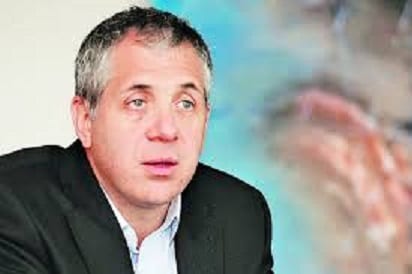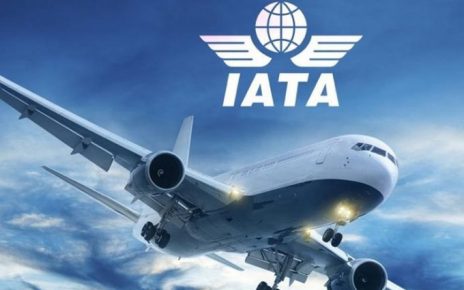- LATAM became one of the 10 largest airlines in the world and clearly a very successful international, even global brand in the industry.
- You take over as CEO of the company during a time where the pandemic, COVID, is beginning to spread through Asia into Europe.
- You take the helm of LATAM, and less than two months after, in May, you’re filing for chapter 11.
In a live interview, Peter Cerda of the CAPA – Centre for Aviation, talks with Robert Alvo, the recently-named CEO of LATAM Airlines.
Peter Cerda:
I have the sincere pleasure of interviewing one of Latin American’s premiere aviation leaders, Roberto Alvo, the chief executive officer of LATAM. Buenos dias Roberto, how are you?
Roberto Alvo:
Hola Peter, hi Peter, how are you? Pleasure seeing you and a pleasure to be here for everyone who will be joining. Thanks again.
Peter Cerda:
So, let me just start straight out. I have a couple of really important dates here. September 2019, you are announced as the new CEO for [Enrique Cueto 00:01:03], a legend, someone who has established the premier airline in the region. You’re the heir to succeed the big, big airline. Just a few months after, March is the big day for you. You take over as CEO of the company during a time where the pandemic, COVID, is beginning to spread through Asia into Europe. You take the helm of LATAM, and less than two months after, in May, you’re filing for chapter 11. Not a very attractive honeymoon that you’ve had. And since then, it’s just been one year of tremendous challenges, not only globally, but on a regional level. Latin America and the Caribbean have been particularly hit. Most of our borders have been closed. How has this one year been for you have? And do you regret that September date when it was announced that you would be the next CEO? Did you ever imagine you would be where you are today?
Roberto Alvo:
No. Well, I mean, first, for me, it’s a great honor to have the opportunity to succeed probably the most prominent CEO that the industry in Latin America has had. Enrique spent 25 years of his life building LATAM from a very small freighter airline to what it is today. LATAM became one of the 10 largest airlines in the world and clearly a very successful international, even global brand on the industry. So, for me, it was a huge source of pride to take the helm, as we mentioned it, and to try to make LATAM even better. And to fill those very big shoes, which is of course a great responsibility.
Yes, and as you said, who would have known that less than 60 days after I took over, I had to take the company into chapter 11. I mean, it doesn’t look well in my CV when I say, “CEO, less than 60 days took the company in chapter 11.” It doesn’t look really good. But that it’s been an incredible year, honestly. Yeah. And I never believed that we’ll be in the position we are today. I think that for every leader in their industry, we’re managing probably the most challenging time that any company may have outside of war time. But at the same time, it has been an incredible experience. And I’m so thrilled to see how this group of companies has been able to navigate these very challenging scenarios. Very proud about each one of the 29,000 employees that work on LATAM. And we wouldn’t be here if it wasn’t for each and every one of them. And it’s been a great learning experience for, I guess, all of us.
So, I’m really happy to be here, even though it sounds a little bit strange and ironic. It’s probably one of the greatest moments to be leading a company in this very, very strange circumstances.
Peter Cerda:
Roberto, we’re going to touch and go really deep into LATAM in a few minutes. Let’s stay with the crisis a little bit longer. You’re an airline that had pre-COVID, at the end of December 2019, over 330 airplanes, you flew to more than 30 countries, 145 destinations. With COVID, with our borders closing, we went from 1700 city connections on a regional scale globally to 640 in April, which with our load turn, now we’re about 1400 city connections. How devastating have the restrictions that have been imposed on the industry, in terms of closure borders, quarantine measures by governments, how difficult has that been for you as an airline to be able to manage through this crisis?
Roberto Alvo:
It [inaudible 00:04:49] been dramatic Peter. On March 11, we flew 1,650 flights. On March 29 last year, we were down to 50 flights a day. So, 96% of less capacity in less than 20 days. I think that we all endured that. And we spent four months almost operating nothing, less than 10% of our capacity. And in the region in particular, the recovery has been relatively slow as compared to other regions, with many restrictions imposed, as you said, by different governments. Probably the most difficult thing is the changing of the restrictions and the lack of ability that customers have to plan at all, with all these conditions changing. I think that we all appreciate social distancing, that’s important and necessary. But unfortunately, a set of conditions that we have seen here, and for sure in other regions of the world, has been extremely challenging for airlines.
I think that the recovery, and we will probably talk a little bit about the future, is going to be challenged by these rules. And we need to think about how do we make the airline industry come back as fast as possible. And the governments will definitely play a key role here.
Peter Cerda:
Let’s talk a little bit about the governments here. We have a very challenging environment. In our region we’re constantly hit with social, economic, political situations year after year. Has the governments in our region done enough to help the industry during this crisis?
Roberto Alvo:
It’s a difficult question to answer. As you know, we did not get, in the region, help from governments to survive and to be rescued, like many companies in the Northern hemisphere have had. It is true though that our governments are relatively poor. These are poor countries [inaudible 00:06:37]. and I fully appreciate that governments face a huge number of challenges and needs. And this is a region where there’s a lot of poor people. And I totally understand the need for them to be helped.
Now having said that, I believe that the government’s still can do much more. And the way the governments navigate the next months as the crisis hopefully starts to wind down with the vaccines, will be key to the success of airlines that fly in the region or airlines that want to fly to the region. I would love to see our governments in the region work in a more coordinated fashion. I think that we need it. This is a very large piece of the world. And unfortunately, there’s little alternative to airlines flying when you want to move. Roads are not the greatest. We have a very little, very small train system in the region. So, airline is definitely key to making sure that connectivity in the region remains and returns, and that the economic development that comes with that is ensured.
Peter Cerda:
[inaudible 00:07:48], you touched on an important point, the vaccine, and bringing confidence. LATAM [inaudible 00:07:53] your region, the region, not only inter-regional, but also international. LATAM’s going to play an important role in bringing these vaccinations to Latin America and bringing it to the different communities. What role have you been playing with government? How have the governments been coordinating with you? Because this is a very important endeavor. As you say, we don’t have infrastructure that we can bring the vaccines by other modes of transportation. Once in the region, it’s got to be airlift. And LATAM is going to play a really important role. How is that coordination going?
Roberto Alvo:
Well, we brought ourselves forward and contacted every government in the region and seeing which ways we can help. I can tell you too, at this point, we have transported to the region, to South America, almost 20 million doses of vaccine. Which is probably almost all the vaccines that have been brought to the region. We committed ourselves to helping the communities where we operate and the countries where we have operations by distributing domestically all the vaccines that they want to for free. And at this point in time, we have already distributed more than 9 million vaccines domestically. And we have reached the most remote places in the region, like the Patagonia in Chile, the Galápagos Islands in Ecuador and the Amazonian Rainforest in Peru and in Brazil. So, we’re very proud that we are, I think, putting a grain of salt in this endeavor and making sure that we can help the vaccination process as fast as we can. So, our commitment to the governments where we operate is to continue not only shipping vaccines for free, but also medical personnel and any other thing that is necessary to making sure that the governments have the resources to fight this terrible pandemic.
Click on NEXT PAGE to continue to read




